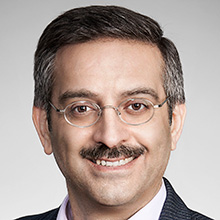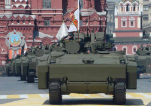
Ukrainian Gas Transit: Still Vital for Russian Gas Supplies to Europe  By Jack Sharples, Research Fellow of the Oxford Institute of Energy Studies and EGF Associate Researcher on the External Dimensions of Russian Gas
By Jack Sharples, Research Fellow of the Oxford Institute of Energy Studies and EGF Associate Researcher on the External Dimensions of Russian Gas
With European gas import demand having risen substantially since 2014, Gazprom has dramatically increased its sales on the European market. In Q1 2018, Gazprom reported record daily gas exports to Europe in late February and early March. This Comment addresses the question of how those volumes were delivered to the market, and the extent to which the infrastructure for delivery of those volumes was used, highlighting that, in times of peak European gas import demand, full utilisation of the Nord Stream and Yamal-Europe pipelines left Ukraine as the only transit route with spare capacity. READ MORE
- EGF Editor |
Published on EGF: 16.05.2018
| Markets
-
Status Report: The Ukrainian Navy By Eugene Kogan, Tbilisi-based defence and security expert
Undoubtedly, the Russian annexation of Crimea in March 2014 caused serious damage to the Ukrainian Naval Forces. About 70 per cent of the fleet has been lost and what remained is in poor shape and in need of repairs.
The resulting conflict in the Eastern part of Ukraine drew attention, energy and resources away from the difficult state of the Ukrainian Navy towards the urgent needs of the army and air force. The perilous state of the economy has further decreased financial support for the Navy’s needs. In addition, a debate on the conceptual vision of the Navy divided the expert community and top naval personnel for about 15 months. READ MORE
- EGF Editor |
Published on EGF: 27.04.2018
| Markets
-
The Other Side of Conflict Resolution: Mobilizing Peace Constituencies in the South Caucasus  By Elkhan Nuriyev, BREC Global Energy Associate, EGF Affiliated Expert
By Elkhan Nuriyev, BREC Global Energy Associate, EGF Affiliated Expert
The international community has so far paid little attention to the South Caucasus where the conflict resolution process is stuck in political limbo for years. This apparent neglect and the lack of understanding of the deep-rooted issues have created an informational landscape where fake news stories harm the ordinary people and violate their fundamental right to make informed choices on the basis of accurate information that is free of deception and manipulation. In effect, the current climate of disinformation aggravates regional tensions and makes incumbent authorities vulnerable to instability. READ MORE
- EGF Editor |
Published on EGF: 27.03.2018
| Markets
-
Armenia caught in a peculiar transit trap  By Benyamin Poghosyan, PhD, Executive Director, Political Science Association of Armenia
By Benyamin Poghosyan, PhD, Executive Director, Political Science Association of Armenia
The South Caucasus is facing an infrastructure development boom. However, Armenia is in stark isolation, with no major project passing through the country.
The launch of new transit routes and transport infrastructure are key topics widely discussed within the context of the geopolitics of the South Caucasus. Since the late 1990s several new pipelines, highways and railroads have been constructed traversing the region. Given the re-emergence of Russia as a key player in the post-Soviet space, since President Putin's ascendance to power in 2000, new transport corridors and large infrastructure projects have become factors in the wider competition between Russia and western countries. READ MORE
- EGF Editor |
Published on EGF: 19.02.2018
| Markets
-
New transport corridors in Eurasia leave Armenia with a dilemma  By Benyamin Poghosyan, PhD, Executive Director, Political Science Association of Armenia
By Benyamin Poghosyan, PhD, Executive Director, Political Science Association of Armenia
Armenia should take additional steps to overcome its regional isolation and boost its economic cooperation with the outside world, otherwise in the long-term it would be more and more difficult for it to counter Azerbaijani and Turkish pressure.
On October 30, 2017 an opening ceremony for the newly constructed Baku - Tbilisi - Kars railway link was held in Baku. The Presidents of Azerbaijan and Turkey, as well as the Prime Ministers of Georgia, Kazakhstan and Uzbekistan, and representatives of Kyrgyzstan and Turkmenistan, participated in the ceremony. The BTK was hailed as one of the shortest routes connecting Asia with Europe, with clear eye for it to be included in China's "One Belt - One Road" project. READ MORE
- EGF Editor |
Published on EGF: 08.11.2017
| Markets
-
Russian Defence Industry in the Era of Putin  By Eugene Kogan, Tbilisi-based defence and security expert
By Eugene Kogan, Tbilisi-based defence and security expert
There is a preconceived and very inaccurate perception in the West at large that the Russian Military-Industrial Complex (MIC) has and will continue to have difficulties in the coming years because Russia faces domestic economic challenges caused by the low price of oil, continuing economic sanctions imposed by the EU and the US and the breakdown of defence industrial relations with Ukraine.
There is very little understanding in the West that for President Vladimir Putin the issue of rearmament and well-functioning of the MIC are of crucial importance, and that the Russian president is not ready to give up an inch in tenaciously pursuing this ambitious items on his domestic agenda. READ MORE
- EGF Editor |
Published on EGF: 14.09.2017
| Markets
-
The South-West Transport Corridor Project and the Geopolitical Reshaping of the South Caucasus
 By Fuad Shahbazov, Expert-advisor, Center for Strategic Studies under the President of the Azerbaijan Republic
By Fuad Shahbazov, Expert-advisor, Center for Strategic Studies under the President of the Azerbaijan Republic
Baku hosted the first joint gathering of the heads of the railway administrations of Iran, Azerbaijan, Georgia, Ukraine and Poland, on June 19. The meeting was dedicated to the newly-launched “South-West Transport Corridor,” which links into the broader Trans-Caspian International Route project launched in 2016. READ MORE
Stakeholder Consultation Round Two - Exploring the Role of Economic Initiatives as Peace Building Tools in the Nagorno-Karabakh Context [UPDATED]
The second stakeholder consultation round in EGF's ongoing Nagorno-Karabakh research took place on 06-08 July 2014 in Berlin (Germany), including introduction of a post-conflict scenario building workshop. More than 30 experts from Armenia, Azerbaijan, and international partner NGOs and institutions attended this highly successful event, held in a constructive atmosphere of exchange. It has been the first step towards exploring the idea of a roadmap leading towards an economically integrated South Caucasus, and created a platform for exchange of information between Armenian and Azerbaijani experts. During the post-conflict scenario building workshop, regional participants simulated the negotiation of a roadmap for the implementation of economic components of a peace agreement built upon the Madrid principles, encompassing joint economic measures in areas such as energy, transport, trade, rehabilitation of the territories affected by the conflict, and the return of IDPs to their homeland.
Please click here for the summary of conclusions.
Please click here to see the agenda of the seminar, and participants’ biographies.
Please click here to see the EGF presentation on this research.
- EGF Editorial |
Published on EGF: 11.07.2014
| Markets
-
Stakeholder Consultation Round Two - Exploring the Role of Economic Initiatives as Peace Building Tools in the Nagorno-Karabakh Context 
(957 Kb)
The second stakeholder consultation round in EGF's ongoing Nagorno-Karabakh research took place on 06-08 July 2014 in Berlin (Germany), including introduction of a post-conflict scenario building workshop. More than 30 experts from Armenia, Azerbaijan, and international partner NGOs and institutions attended this highly successful event, held in a constructive atmosphere of exchange. It has been the first step towards exploring the idea of a roadmap leading towards an economically integrated South Caucasus, and created a platform for exchange of information between Armenian and Azerbaijani experts. During the post-conflict scenario building workshop, regional participants simulated the negotiation of a roadmap for the implementation of economic components of a peace agreement built upon the Madrid principles, encompassing joint economic measures in areas such as energy, transport, trade, rehabilitation of the territories affected by the conflict, and the return of IDPs to their homeland. Click here to see the agenda of the seminar, and participants’ biographies. Click here to see the EGF presentation on this research. A summary of conclusions, as well as other related information will be published soon.
- EGF Editorial |
Published on EGF: 11.07.2014
| Markets
-
